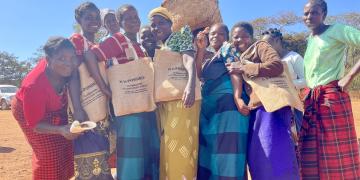The journey - Informing all relevant authorities from national to local level to get their buy-in, permission, contacts and recommendations
Involving local ambassadors
Illustrated cards and role games
Developing a multi-stakeholder platform to ensure continued progress and sustained commitment
Strengthening local communities’ structures to improve the effectivity and capacities of local actors being part of a value chains on traditional medicine
